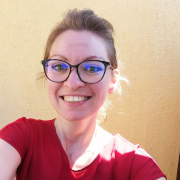Remote addiction treatment allows patients to connect with healthcare addiction specialists remotely and has shown high success rates. This guide discusses different types of online treatment and how they work, rural-specific challenges, and where to find the best remote healthcare providers.
- Remote addiction treatment covers assessment, therapy, case management, and peer support.
- Telehealth can be direct or indirect and is mostly used for mental health issues.
- Telehealth and in-person healthcare for addiction have similar results.
- Your doctor or insurance company can advise you on the best online addiction treatment.

What is remote addiction treatment?
Remote addiction treatment involves offering patient support for substance use disorder (SUD) online or through telephone and video technologies. This support ranges from initial assessment to outpatient care, therapy sessions, and support groups.
One survey of 457 health organizations showed that online addiction treatment has become prevalent. Telehealth has become popular during the COVID-19 pandemic, but this study noted that over 70% of their respondents still use this technique for most of their services.[1]
The two services for which remote addiction treatment remains low are telephonic residential counseling and buprenorphine therapy.[1]
What types of remote treatment are there?
Remote addiction treatment can be synchronous or asynchronous.
In synchronous online addiction treatment, the patient and their healthcare provider interact in real time through phone or video calls on a laptop, smartphone, tablet, or other device.
In asynchronous telehealth, the patient and healthcare provider leave messages for each other, such as voice calls, texts, or emails. In this case, they are not in direct contact.
Telehealth can include smartphone apps as health monitoring or treatment tools.[2]
Remote treatment can also be classified according to the type of conditions that can be diagnosed.
The FH NPIC® database of over 41 billion private medical records highlights that the top five diagnoses made through telehealth are:
- Mental health conditions
- Acute respiratory diseases and infections
- Developmental disorders
- Joint/soft tissue diseases and issues
- Endocrine and metabolic disorders
Mental health conditions rank higher at 68.4%, while the other diagnoses are below 3% of diagnoses made.[4] This statistic is an essential argument for remote addiction treatment because most substance use disorders and withdrawal attempts trigger mental health symptoms like anxiety, depression, or mood disorders. Managing these symptoms can result in better treatment adherence and faster recovery.
Another way of categorizing online addiction treatment is by the services offered.
Other research shows that 84.6% of healthcare providers who use telehealth for SUD offer telephonic screening and assessments. 83% of respondents also use telehealth for regular outpatient care via phone, while only 58% conduct intensive outpatient treatment via phone.
Case management is done mainly by phone as well, practiced by 84.3% of clinics offering online addiction treatment.
By contrast, video-based services are used in 73% of cases for screening and assessment, in 80.3% of cases for regular outpatient treatment, and in 67.8% of cases for intensive outpatient treatment. 68.8% of responding healthcare organizations use video-based online addiction treatment for case management.[1]
Related: Virtual reality to be trialed in cocaine addiction treatment
How does remote treatment work?
Remote addiction treatment depends on the type of telehealth services offered. In synchronous telehealth, the practitioner makes their assessment based on live discussions between themselves and the patient. Based on this assessment, the healthcare provider decides on the treatment plan and conducts case management by remote or in-person means.
In asynchronous online addiction treatment, the patient gathers all the necessary medical information, sending them to their assigned healthcare provider. The specialist physician analyzes the documents, diagnoses the case, and provides the necessary treatment.[2]
Studies show that 45% of remote addiction treatment was conducted through computerized or online assessments, thus helping patients with SUD get critical care promptly. The three most common types of evaluations included Alcohol Use Disorders Identification Test, Drug Abuse Screen Test (DAST-10), and Tobacco, Alcohol, Prescription medication, and other Substance use (TAPS).[3]
Regarding addiction recovery, 29% of remote addiction treatment represents telephone-based recovery support (e.g. speaking to someone when feeling at risk during recovery), while telephone-based therapy represents 28% (e.g. engaging in cognitive behavioral therapy sessions). Video-based recovery therapy represents 20%.[2]
Current studies highlight that in-person and remote addiction treatment are similarly effective in terms of retention, treatment satisfaction, and substance use. However, telehealth methadone medication management has shown higher retention rates.[6]
Also read: In The Rooms - Online Peer Support & Recovery Community
Barriers to addiction treatment in rural areas
Studies highlight that people with addiction issues from rural environments are significantly affected by the opioid epidemic.[1]
Most studies point out that rural environments face specific challenges for in-person addiction treatment, such as a less diverse range of treatment options and auxiliary services in terms of detoxification and mental health support. Additionally, rural counselors may have fewer resources for minorities, women, and individuals with HIV. Counselors are impacted by a lack of continuous education, low salaries, and long hours.[6]
Other challenges include:
- Difficulty communicating with non-English speaking clients
- Lack of case management
- Few technological resources
- Understaffing
- Excessive paperwork
- Client distance from treatment centers
While rural healthcare providers should be more inclined to telehealth than their urban peers, research shows no marked difference in telephonic or video services between rural, urban, or suburban locations.[1]
However, due to increased connectivity, rural healthcare providers prefer phone-based rather than video-based telehealth.[1]
Where to find remote treatment
The best way to find remote addiction treatment is to contact your general healthcare provider. They will assess your situation and recommend the best outlet. Your insurance provider may also recommend an online addiction treatment provider they cover.
Additionally, telehealth platforms connecting patients with addiction treatment providers allow you to search specific addiction specialists by location and specialty.
Lastly, you can access state-specific resources by checking with your state’s health department or behavioral health agency.


-(1)-guide-detail.jpg?v=1722501504)

-guide-detail.jpg?v=1756809008)